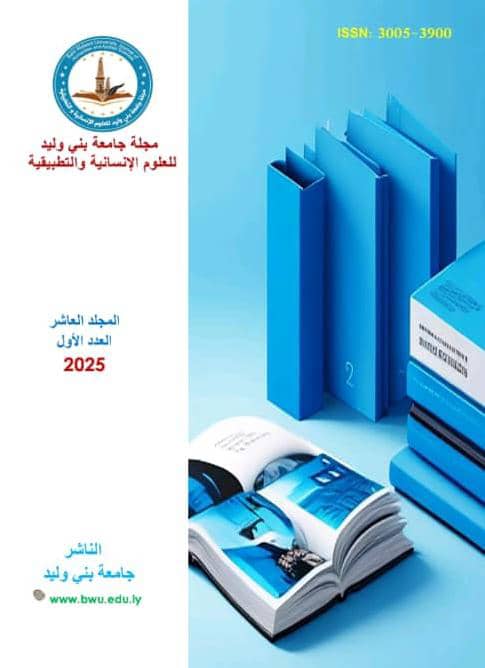Features of the modernist poem; Salah Abdel Sabour as a model
DOI:
https://doi.org/10.58916/jhas.v10i1.651Keywords:
Salah Abdel Sabour, modernist poem, linguistic structure, repetition, myth symbolAbstract
Modernity in its concept has occupied writers and critics between supporters and opponents, encouragers and opponents, which made us turn to revealing the features of the modern poem and what distinguishes it from the classical poem, starting from the departure from the Khalili prosody, and ending with what it carries of intellectual contents that are compatible with the data of the modern era and its cultural developments. The modern poet set out, escaping the classical restrictions of the poem, imitating the West in his approach, influenced by the changes that occurred in society; Intellectually and culturally, the modernist poet delved into the depths of human culture, taking symbols and myths as a material with which to satisfy his desires, and through which he employed his new visions. The research was directed to reveal these variables that affected the modernist poem and made it unique from others. It is a poem that rebelled against the old Khalili prosody, so it adopted the metrical system instead of the metrical meter. It also rebelled against the traditional language to create for itself a special language that keeps pace with modern developments. The research also aims to reveal the intellectual and cultural visions of the modernist poet and the symbols and myths he uses, and to intensify the language and load it with new energies. The research faced difficulty in understanding the modern poetic language and realizing the metaphysics of the condensation that reaches the point of ambiguity in some poems, as well as understanding the symbols and myths used and projecting them onto reality. The research reached several results, the most important of which are: the poet was influenced by ordinary everyday language, and the impression of that on his poems influenced by Western literature.
The poet also excelled in employing the mythical symbol in a way that affected the text and gave it two interpretations: an apparent interpretation, and an interpretation expressing the intended immanent meaning and understanding by understanding the external dimensions of the poem.
The research reached several recommendations, the most important of which are: recommending more artistic and critical studies of modern poetry to reveal their symbolism, and reveal the reflection of poetry on the issues of society and its keeping pace with it.
Downloads
References
First: Poetic works:
Abdel-Sabour, Salah, Diwan Salah Abdel-Sabour, Vol. 3, Dar Al-Awda, Beirut-Lebanon, 2nd ed., 1977.
Abdel-Sabour, Salah, I tell you, Commercial Office for Distribution and Publishing Publications, 1st ed., 1961.
Anani, Muhammad, The most wonderful things written by the poet Salah Abdel-Sabour, Family Library, Cairo, 1998.
Second: References:
Hassan, Enas Muhammad Sayyid, The role of the word in the poetry of Salah Abdel-Sabour “People in my country” as a model, Journal of the Faculty of Islamic and Arabic Studies for Girls in Alexandria, Vol. 2, No. 34, n.d.
Sheikha, Muhammad Al-Amin, Thresholds of access to the methods of modern poetic text, Journal of the Faculty of Arts, Humanities and Social Sciences, No. 2-3, 2008.
Amer, Reda, Poetic Modernity, Its Manifestations, Characteristics, and Manifestations, Papers of the International Journal of Literary and Human Studies, Algerian Encyclopedia Laboratory, University of Batna-Algeria, Vol. 1, No. 1, 2019.
Abdul Rahman, Ibrahim Muhammad Abdullah, Arabic Poetic Modernity, An Objective View, Journal of Scientific Research in Literature, No. 7, 2020.
Abdul Latif, Muhammad Hamasa, Grammatical Phenomena in Free Verse (A Textual Study in the Poetry of Salah Abdel Sabour), Dar Gharib for Printing and Publishing-Cairo, 2001.
Abdullah, Muhammad Ahmad Muhammad, Mythical Discourse in Modern Arabic Poetry, Journal of Arab Studies, Faculty of Dar Al-Ulum, Minya University, n.d.
Othman, Farid Imam, Features of Modernity in the Poetry of Salah Abdel Sabour, Modernity Magazine 2016.
Al-Alaq, Ali Jaafar, In the Modernity of the Poetic Text, Critical Studies, General Cultural Affairs House, 1st ed., Baghdad, 1990.
Mohammed, Belmokhtar, Youssef, Belmokhtar, Symbol and Myth in the Poetry of Abdul Wahhab Al-Bayati, Master's Thesis, Faculty of Arabic Literature, Abdel Hamid Badis University - Algeria, 2019-2020.
Al-Malaika, Nazik, Contemporary Poetry Issues, Dar Al-Ilm Lil-Malayin, Beirut - Lebanon, 5th ed., 1978.
Yassin, Moataz Qusay, The Aesthetics of Repetition in the Poetry of Ahmed Matar, Arabian Gulf Magazine, Vol. 46, No. 1-2, 2018.













